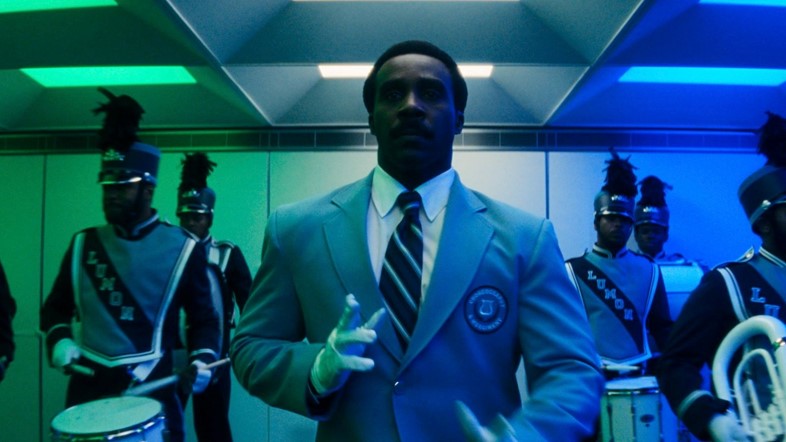Dan Erickson’s surrealist workplace drama rediscovered its mojo after a tricky second series, even if some mysteries are best left unsolved
And, bam! After seven hours in which it sparked, guttered and threatened to lose its way completely, the second season of Severance exploded into life with a finale that made good on its missteps.
Am I the only one who felt this way about the new instalment of Dan Erickson’s surrealist workplace show? For too long our second date with severed comrades Mark S, Helly R, Irving B and Dylan G succumbed to the obvious pitfalls. Mark S (Adam Scott), having learned his outie’s dead wife was alive at the end of the first season, was never going to return meekly to the fold this time around, and so we were treated to long expositionary scenes on the world outside Lumon’s weirding walls and some stuff about a character, Gemma/Miss Casey, we’d never been made to care for in the first place. Worse, some scenes flirted with the kind of hackneyed lost-wife melodrama that would make Leo DiCaprio blush.
At times Erickson seemed to be misreading the appeal of the show in the first place, which lay chiefly in the alarming non-space of Lumon HQ and its inhabitants, as if Franz Kafka had been invited to guest-direct an episode of The Office. Much of its weird comic charge sprang from the fact its protagonists were at the mercy of forces they could never hope to understand, slaves to a scheme which had been sold to them as a freedom from pain. Here, there was a heavy emphasis on the corporate conspiracy that lay behind the concept, and too much time spent apart from the characters that made the story tick.

But Erickson pulled it all together with a finale that effectively juggled moments of action, suspense and comedy, while deepening the first series’ satire with a handful of scenes that packed surprising emotional punch. The first masterstroke came via Mark’s camcorder tete-a-tete with his innie, whom he needs to recruit into his scheme to rescue his wife. But Mark S has found something to live for at Lumon: what makes boring dead-wife Gemma more important than Helly? (Answer: nothing.) And why should he trust him anyway when he says the two will be ‘integrated’ into a unified consciousness as part of the plan? The conversation quickly descends into a row, an inspired conceit that graphically illustrates Mark’s alienation. Think of him as an embodiment of the ‘divided self’, psychiatrist RD Laing’s idea that mental illnesses can in part be explained by unliveable realities experienced in the capitalist society of today.
That piece of existentially knotty business out of the way, the episode was free to cut loose with its big set-piece, the completion of Cold Harbour and the ensuing celebrations led by the peerless Mr Milchick (Tramell Tillman, still the show’s secret beating heart). Ever the ambivalent face of middle management, Milchick traded barbs with a creepy talking mannequin of Lumon’s founder, Kier Eagan, before busting out his best dance moves in a marching-band freakout that echoed the iconic ‘waffle party’ from the first series. (Side note: do the Emmys do awards for best lighting in a series? Severance is an absolute mood in this respect alone.)

Finally, the episode resolves on a theme that’s been an undercurrent throughout this ambitious but occasionally testing second season: the idea of love as a form of self-sacrifice. Dylan is faced with an impossible decision in the wake of his resignation from Lumon. And Mark S is forced to choose between ‘wife’ and girlfriend without betraying his newfound sense of innie pride. The vibe is less Kafka, more Charlie Kaufman at his most freewheeling and provocative, a trade-off that feels earned here.
Still, you had to accept that this was a slightly different show from the one we were sold first time around. The shift in tone was perhaps best summed up by the reveal of Cold Harbour’s true meaning, to create new ‘innie’ consciousnesses for Gemma. Suddenly, the numbers that Mark manipulates on-screen cease to exist as a satire of meaningless white-collar drudgery – the kind that uses you up and “discards you like a skin husk”, in Cobel’s crisp turn of phrase – and instead become symbols of a deep personal pain and longing. It’s a well-wrought twist but also a reminder, perhaps, that not all mysteries need solving. A third season has been just been announced.
